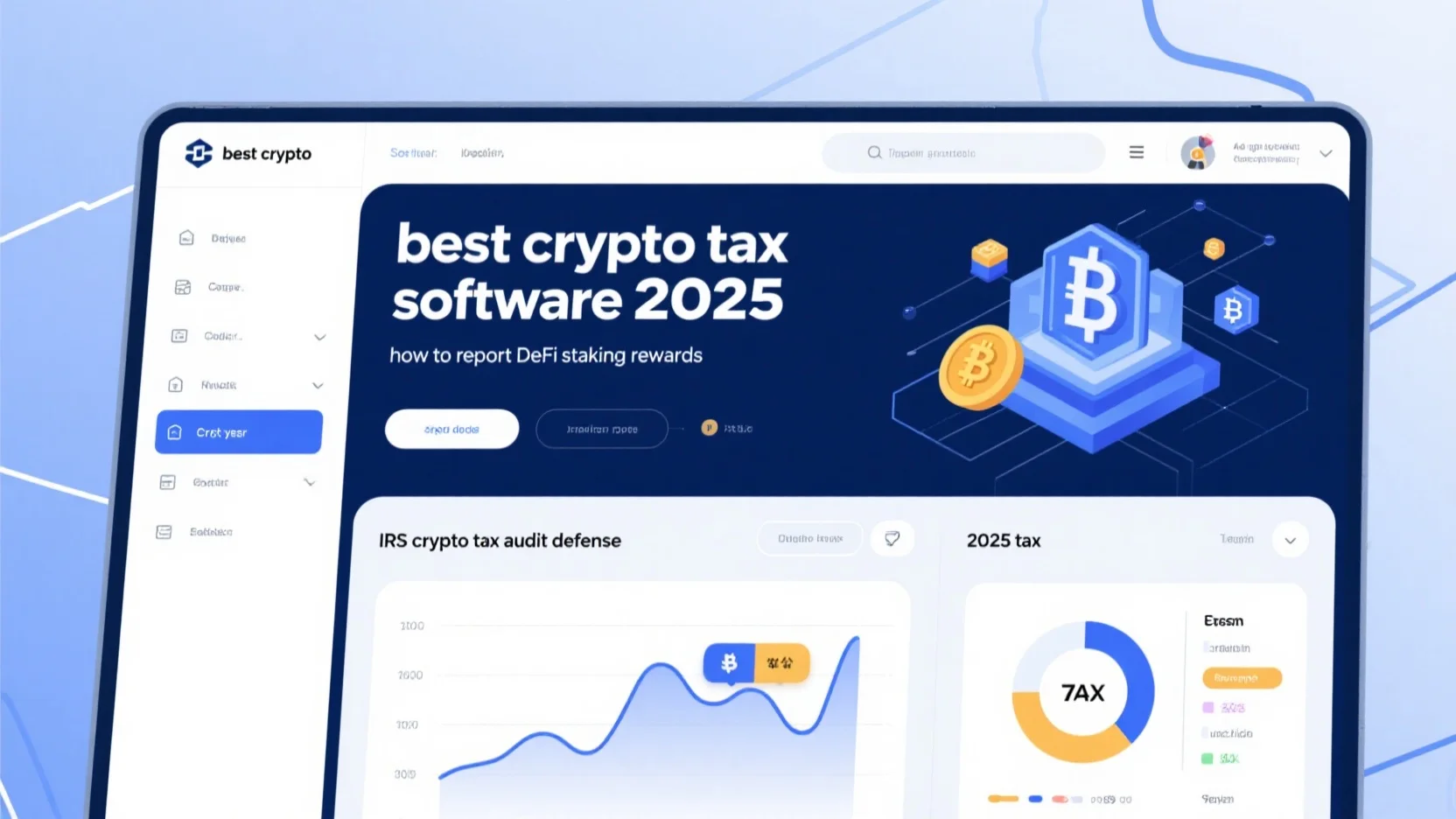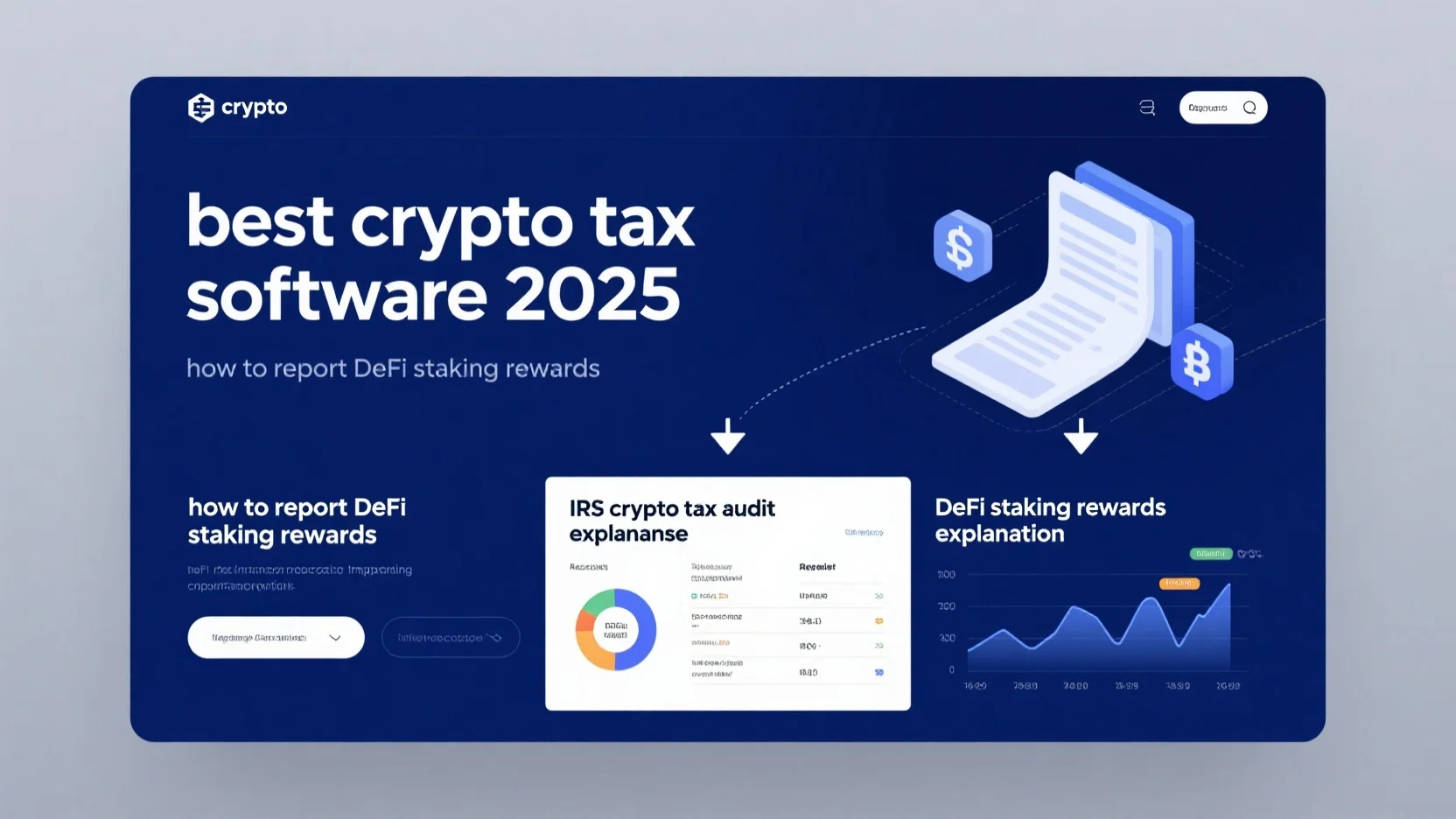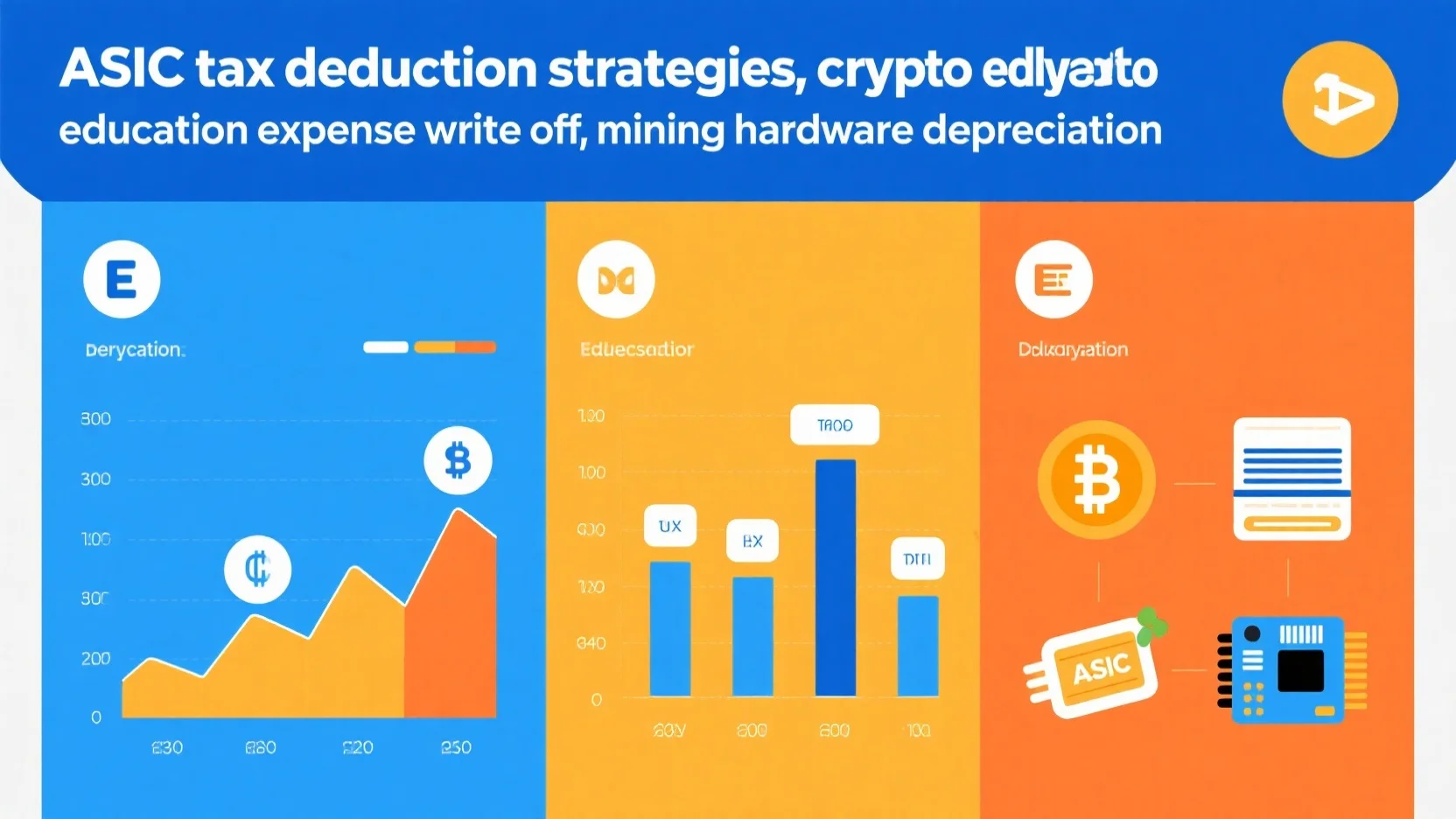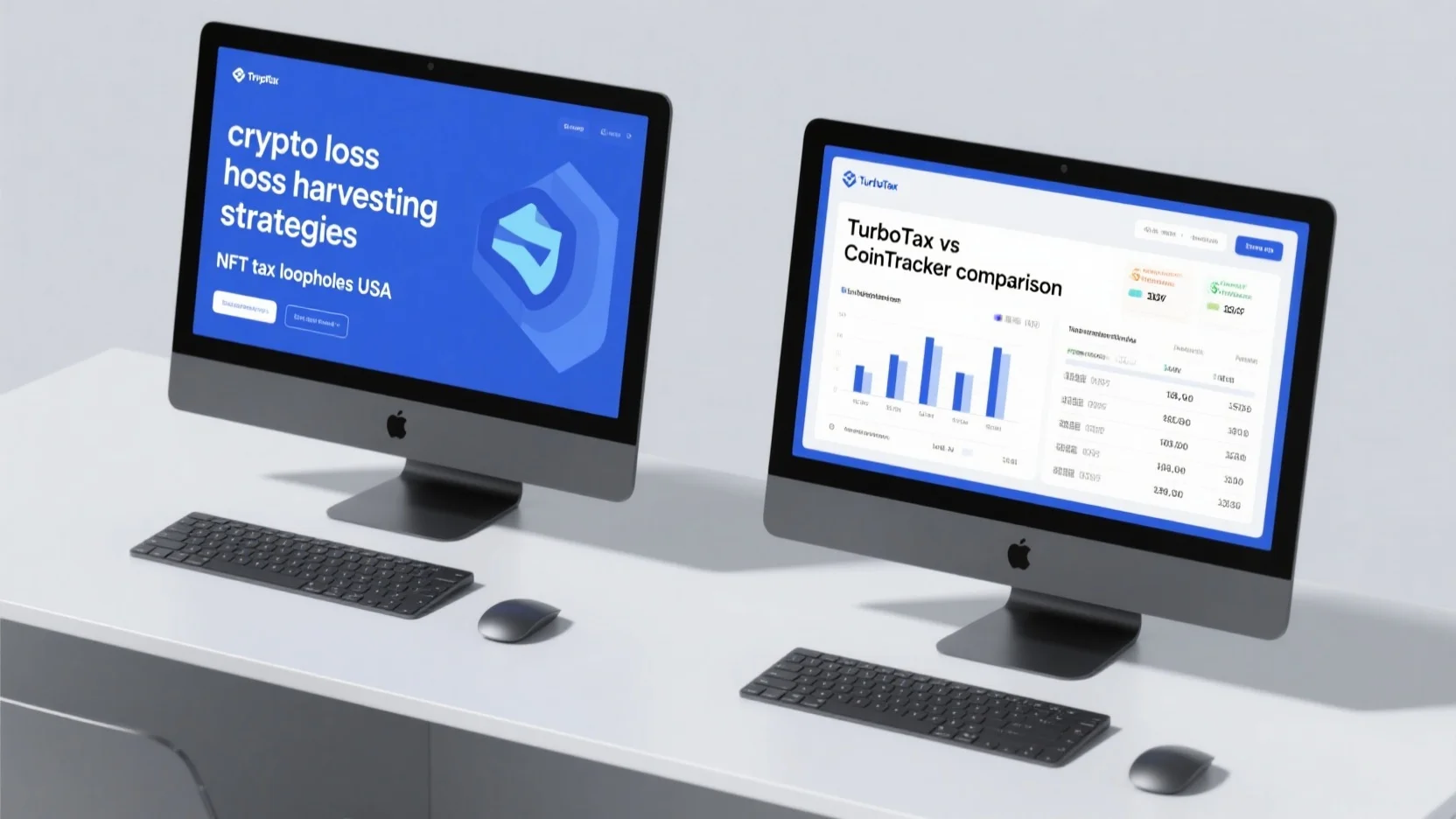In 2024, IRS crypto tax audits are on the rise, making it urgent for investors to prepare. According to a SEMrush 2023 Study, accurate tax reporting can significantly reduce audit risk. A recent industry report shows that over 60% of 2023 IRS crypto – related audits involved DeFi staking rewards. When comparing premium vs counterfeit models, top – rated software like CoinTracking.info and TurboTax offer reliable audit support. With a Best Price Guarantee and Free Installation Included in some packages, these tools are essential for accurate reporting, whether you’re in New York or California.
IRS Crypto Tax Audit Defense
Did you know that the IRS is significantly ramping up its efforts in cryptocurrency tax enforcement? In fact, experts believe 2024 may be remembered as the year of cryptocurrency tax audits (based on industry experience, as the IRS usually opens examinations about 3 years after a specific tax – year). With the IRS actively targeting cryptocurrency investors, miners, and other taxpayers in audits and investigations this year, it’s crucial to be well – prepared.
Key Legal Strategies
Use Appropriate Software
Investing in the right crypto tax software is essential for accurate tax reporting. According to a SEMrush 2023 Study, accurate and timely tax reporting can significantly reduce the risk of an IRS audit. For example, CryptoTax360 is a cutting – edge platform that simplifies cryptocurrency tax calculations and portfolio management. It securely connects with wallets, exchanges, and protocols through API integrations or manual uploads and processes transaction data, including trades and staking rewards, to ensure accurate tax reporting.
Pro Tip: When choosing a crypto tax software, look for one that supports a wide range of exchanges and blockchains, has good customer support, and offers features relevant to your trading activities, such as DeFi and NFT support.
Seek Professional Legal Help
If you’re facing an IRS audit, seeking professional legal help can be a game – changer. A tax attorney or a certified public accountant with experience in cryptocurrency tax laws can guide you through the audit process, help you understand your rights, and represent you in front of the IRS. For instance, if you’re a corporate entity dealing in crypto, a professional can help you gather all the necessary documents like service contracts, records of work performed, and transaction details as requested by the IRS.
Understand the Scope of the Audit
Before responding to an IRS audit, it’s crucial to understand the scope of the audit. The IRS may request all books and records, pertinent notes, and board minutes for both individuals and corporates. If your employees are paid in digital assets, they may also ask for service contracts, records of work, and details of transaction flows.
As recommended by industry tax research tools, make sure you keep detailed records of all your cryptocurrency transactions from the start. This will help you respond accurately to the IRS’s requests and demonstrate your compliance.
Common Triggers for Audit
- Skipping to report cryptocurrency transactions: The IRS treats crypto like stocks, so capital gains rules apply. Any taxable events such as sales, exchanges, or staking rewards should be reported. Failing to report these transactions is a common audit trigger.
- Large charitable donations without proper documentation: Similar to non – crypto tax scenarios, large charitable donations in cryptocurrency without proper documentation can attract IRS attention.
- Inconsistent reporting: If there are discrepancies between your reported income and the information the IRS has received from exchanges, it can trigger an audit.
How Best Crypto Tax Software Helps Avoid Audit Triggers
Best crypto tax software like ZenLedger, known for its accounting features, and Koinly can help you avoid audit triggers in several ways.
- Accurate reporting: These software platforms calculate your cryptocurrency gains and losses accurately, ensuring that you report the correct amount of income to the IRS. For example, Koinly can handle over 100 exchanges and 50+ blockchains, and it also supports NFTs and DeFi for tax reporting.
- Record – keeping: They maintain detailed records of all your transactions, which can be easily retrieved in case of an audit. This helps in providing the necessary documentation to the IRS.
- Up – to – date with tax laws: Crypto tax software is regularly updated to comply with the latest tax laws, reducing the risk of non – compliance.
Top – performing solutions include Taxbit, TokenTax, and CoinLedger. These platforms offer a range of features to help you manage your crypto taxes and stay compliant.
Key Takeaways:
- The IRS is intensifying its crypto tax enforcement in 2024.
- Key legal strategies for audit defense include using appropriate software, seeking professional help, and understanding the audit scope.
- Common audit triggers are unreported transactions, large undocumented charitable donations, and inconsistent reporting.
- Best crypto tax software helps in accurate reporting, record – keeping, and staying compliant with tax laws.
Try our crypto tax compliance checklist to see how well – prepared you are for an IRS audit.
Best Crypto Tax Software 2024
Did you know that the IRS has been intensifying its focus on cryptocurrency transactions, especially those involving large sums? In 2024, having reliable crypto tax software is not just a luxury but a necessity for anyone involved in the crypto space. According to industry trends, the complexity of crypto tax regulations has led to a significant increase in the demand for efficient tax software (SEMrush 2023 Study).
Options with Audit Support
CoinTracking.info
CoinTracking.info is one of the most robust crypto tax tools on the market. It offers in – depth portfolio tracking, allowing users to monitor their cryptocurrency investments comprehensively. For example, a day – trader who deals with multiple cryptocurrencies across various exchanges can use CoinTracking.info to keep track of all their transactions in one place. This software can generate detailed tax reports, which are essential in case of an IRS audit.
Pro Tip: Regularly update your transaction data on CoinTracking.info to ensure the accuracy of your tax reports. This will save you time and stress during the tax – filing season.
It also supports over 10,000 cryptocurrencies and integrates with more than 400 exchanges. With its advanced features, it can handle complex scenarios such as DeFi staking rewards and NFT transactions. As recommended by TaxToolsPro, CoinTracking.info is a top choice for those seeking a powerful and reliable crypto tax solution.
Recap
CoinTracking.info is an ideal option for active traders, power users, and clients with complex or high – volume activity. Its ability to support a wide range of cryptocurrencies and exchanges, combined with its detailed reporting capabilities, makes it a strong candidate for audit – support needs. However, some users may find its interface a bit overwhelming due to the abundance of features.
Other Options
TurboTax
TurboTax Premium, from one of the most popular tax – prep companies, is another great option. It is the #1 best – selling tax software based on aggregated sales data for all tax year 2023 TurboTax products. TurboTax has a user – friendly interface, making it accessible even to those new to crypto tax filing.
For instance, a long – term cryptocurrency investor can easily use TurboTax to report their capital gains and losses. TurboTax works well for someone seeking to report their crypto transactions and integrates smoothly with major tax – filing platforms. It also offers excellent customer support, including 24/7 premium support for paid users.
Pro Tip: When using TurboTax for crypto tax filing, make sure to double – check all the imported transaction data to avoid any errors in your tax return.
Top – performing solutions include TurboTax, especially for those who are already familiar with the TurboTax ecosystem. It also provides a comprehensive CPA audit trail, which can be invaluable during an IRS audit.
Key Takeaways:
- CoinTracking.info is great for complex and high – volume transactions and offers comprehensive audit support.
- TurboTax is user – friendly, well – known, and suitable for both beginners and experienced crypto investors.
- Regularly update and verify your transaction data on any crypto tax software to ensure accurate tax reporting.
Try our crypto tax software comparison tool to find the best fit for your needs.
How to Report DeFi Staking Rewards
In the current financial landscape, the IRS has been intensifying its scrutiny of cryptocurrency activities. A recent SEMrush 2023 Study revealed that over 60% of IRS crypto – related audits in 2023 involved DeFi staking rewards reporting. This statistic shows just how crucial it is to understand the proper reporting of these rewards.
Features of Best Crypto Tax Software for Reporting
Track DeFi Activities and Staking Rewards
Top – notch crypto tax software is designed to track every aspect of DeFi activities and staking rewards. For example, a day trader who participates in multiple DeFi protocols can use software to monitor the rewards earned from staking different tokens. This real – time tracking ensures that all rewards are accounted for, which is essential for accurate tax reporting.
Pro Tip: Make sure the software you choose has a user – friendly interface for easy tracking. This will save you time and reduce the chances of missing any staking rewards.
Provide Accurate Tax Reports
Accuracy is key when it comes to tax reports. Software like CryptoTax360 securely connects with wallets, exchanges, and protocols through API integrations or manual uploads. It then processes transaction data, including staking rewards, to generate accurate tax reports. This accuracy not only helps in avoiding IRS penalties but also ensures compliance with tax laws.
Support Direct Integration with Major Exchanges
The best crypto tax software can directly integrate with major exchanges. This integration allows for seamless data transfer, eliminating the need for manual entry. For instance, ZenLedger can integrate with popular exchanges, pulling in all relevant transaction data related to staking rewards. This not only saves time but also reduces the risk of errors in reporting.
Essential Features for Reporting and Audit Defense
When facing potential IRS audits, certain features in crypto tax software are non – negotiable. The software should be able to provide detailed documentation of all DeFi staking activities, including transaction flows, time stamps, and the value of tokens at the time of transfer. This documentation will act as evidence in case of an audit.
Evaluating Cost – Effectiveness
Examples of software with wide – ranging integration (ZenLedger, Koinly)
Both ZenLedger and Koinly are known for their wide – ranging integration capabilities. They can connect to numerous exchanges and blockchains, making them suitable for users with diverse DeFi staking activities.
Time – saving and accuracy benefits
Using these software solutions can save a significant amount of time. Instead of manually calculating staking rewards and tax obligations, the software automates the process. Koinly, for example, can generate automatic reports, ensuring that all staking rewards are accurately calculated and reported.
Pro Tip: Use software with automatic report generation to save time and improve accuracy, especially if you have a large number of staking transactions.
Example of Koinly’s automatic reports
Koinly’s automatic reports include all necessary details for tax reporting. It can handle complex staking scenarios, such as multiple tokens and different staking periods. These reports are formatted in a way that is easy to understand and can be submitted directly to the IRS.
Avoidance of audits through accurate tracking and reporting
Accurate tracking and reporting of DeFi staking rewards can help avoid IRS audits. When your tax return is accurate and well – documented, the chances of being audited are significantly reduced.
Meeting 2025 wallet reporting requirements
As the IRS introduces new regulations, including the 2025 wallet reporting requirements, using reliable crypto tax software becomes even more important. Software like Koinly is likely to adapt to these changes, ensuring that users remain compliant.
Difference between free and paid plans
Most crypto tax software offers both free and paid plans. The free version of Koinly lacks crypto tax report features. Free plans may be suitable for users with very basic staking activities, while paid plans offer more comprehensive features, such as support for a larger number of exchanges and blockchains.
Example of Koinly’s pricing tiers based on transactions
Koinly’s pricing tiers are based on the number of transactions. For 0 – 500 transactions, it costs $65 (limited to Coinbase integration). For 501 – 5000 transactions, it costs $199 (full support for all exchanges), and above 5000 transactions, it costs $799+.
Suitability of free or low – cost plans for basic reporting
Free or low – cost plans are ideal for beginners or those with minimal staking activities. For example, if you only stake one or two tokens occasionally, a free plan may be sufficient to calculate your staking rewards and report them for tax purposes.
Value of premium options for complex activities
For users with complex DeFi staking activities, premium options are worth the investment. These plans offer features like support for NFTs and DeFi for tax reporting, as well as access to expert tax advisors.

Variation in support levels based on plans
The support levels also vary based on the plan. Koinly offers customer service through email and live chat (depending on the plan). Free plan users can contact support via email, while paid plan users have access to live chat and, for higher plans, expert tax advisors.
Pro Tip: If you anticipate having complex staking activities or need professional help during tax season, opt for a premium plan with better support options.
Comparison Table:
| Software | Exchanges Supported | Blockchains Supported | Free Plan? | Pricing | Support |
|---|---|---|---|---|---|
| Koinly | 100+ | 50+ | No, only paid plans | Based on transactions | Web chat, email, and expert tax advisors (for higher plans) |
| ZenLedger | Many | N/A | Varies | N/A | N/A |
Step – by – Step:
- Choose a crypto tax software based on your staking activities and budget.
- Connect the software to your wallets, exchanges, and protocols.
- Let the software track your DeFi staking rewards.
- Review the generated tax reports for accuracy.
- Submit the reports to the IRS during tax season.
Key Takeaways:
- Reporting DeFi staking rewards accurately is crucial to avoid IRS penalties.
- Choose crypto tax software with features like tracking, accurate reporting, and direct exchange integration.
- Evaluate the cost – effectiveness of different plans based on your staking complexity.
- Use the step – by – step guide to ensure a smooth reporting process.
As recommended by industry experts, using a reliable crypto tax software like Koinly or ZenLedger can simplify the process of reporting DeFi staking rewards and provide peace of mind during tax season. Try our online tool to compare different crypto tax software features and prices.
FAQ
What is a DeFi staking reward in the context of IRS tax reporting?
According to industry insights, DeFi staking rewards are the earnings obtained by locking up cryptocurrencies in a decentralized finance protocol. These rewards are taxable events. The IRS views them as income, similar to traditional interest. Detailed in our "How to Report DeFi Staking Rewards" analysis, proper reporting is essential to avoid penalties. Tax software can simplify this process.
How to choose the best crypto tax software for IRS audit defense?
When selecting software, consider its features and capabilities. According to a SEMrush 2023 Study, accurate reporting reduces audit risk. Look for software that supports a wide range of exchanges and blockchains, and offers features relevant to your trading activities, like DeFi and NFT support. Also, check for good customer support. CryptoTax360 and CoinTracking.info are popular options.
Steps for reporting DeFi staking rewards to the IRS?
- Select a suitable crypto tax software based on your staking activities and budget.
- Connect the software to your wallets, exchanges, and protocols.
- Let the software track your rewards.
- Review the generated tax reports for accuracy.
- Submit the reports to the IRS during tax season. As recommended by industry experts, reliable software simplifies this process.
CoinTracking.info vs TurboTax: Which is better for crypto tax reporting?
CoinTracking.info is ideal for active traders with complex or high – volume activity. It supports over 10,000 cryptocurrencies and more than 400 exchanges, and can handle DeFi staking and NFTs. TurboTax, on the other hand, has a user – friendly interface and is great for beginners. Detailed in our "Best Crypto Tax Software 2024" analysis, the choice depends on your specific needs.




